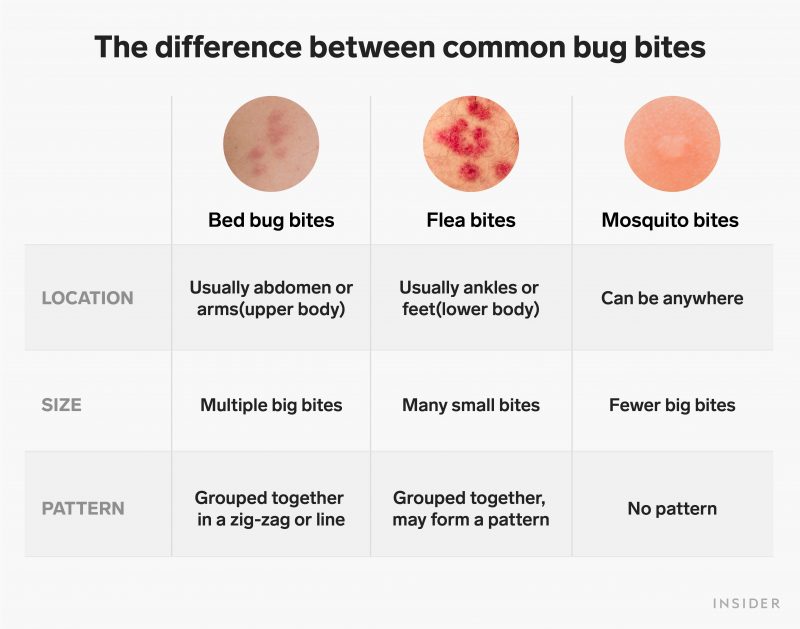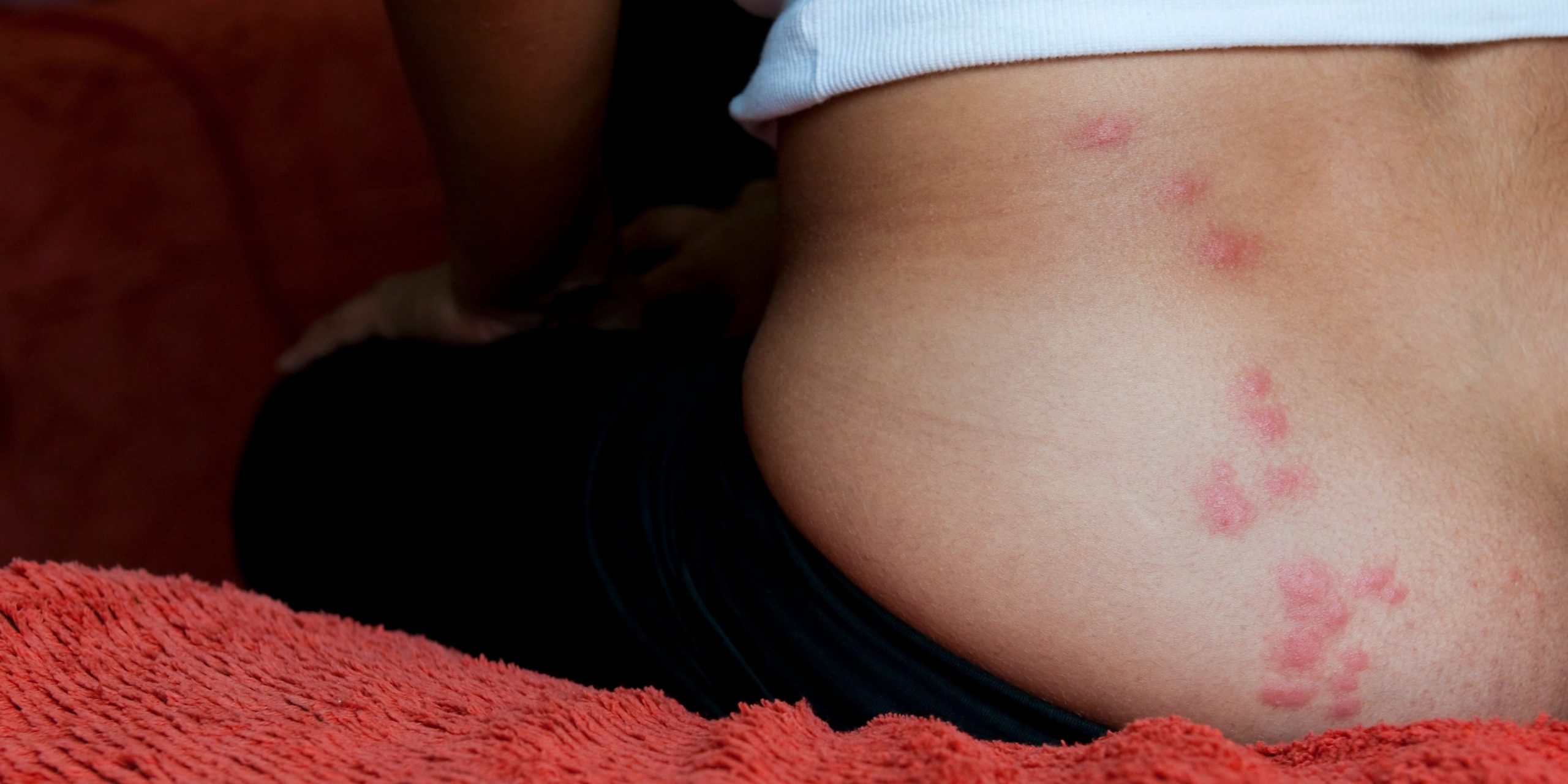- To treat bed bug bites, you should make sure not to scratch them, and instead use anti-itch cream, oral antihistamines, or a cold compress to soothe your skin.
- You will also need to take steps to get rid of the bed bugs, because if you have an infestation, they will keep biting you.
- Here’s how to identify bed bug bites and get the right treatment.
- This article was medically reviewed by Mona Gohara, MD, a dermatologist at the Yale School of Medicine.
- Visit Insider’s Health Reference library for more advice.
Bed bug bites are itchy, annoying, and just plain creepy. Although the bites are generally harmless, it’s important to get rid of bed bugs, otherwise they will keep biting you.
Meanwhile, there are a few at-home treatment methods you can use to relieve the itchiness from your bed bug bites. If those don’t work, you may want to see your doctor for stronger, prescription medication.
Here’s how you can recognize bed bug bites and treat them effectively.
What do bed bug bites look like?

Bed bug bites appear as small red marks on light skin, and could appear as small dark spots on skin that is darker shades, says Sharleen St. Surin-Lord, MD, medical director at Visage Dermatology and Aesthetics Center in Washington D.C.
Usually, they'll appear in clusters of 3 to 5 bites in a zig-zag pattern that reflects where the bug has moved on your body. Although bed bugs can bite anywhere, the bites tend to be concentrated on the abdomen and arms, St. Surin-Lord says.
Bed bug bites tend to be a little smaller than mosquito bites, though it may be difficult to tell them apart from flea bites.
"The difference is that you normally can see the fleas jumping around or the mosquitos, after they have bitten you," St. Surin-Lord says. "Bed bugs are a little more clandestine."
This comparison table can help you diagnose your type of bug bite:

How to treat bed bug bites
The major symptoms of bed bug bites typically include redness and itchiness.
You can treat these symptoms by first washing the bite site with soapy water to remove any dirt or debris. Then, you can try these at-home remedies:
- Anti-itch cream. These over-the-counter drugs include steroid ointments, like Cortisone, or antihistamine creams, like Benadryl. Both reduce itching and swelling and can provide relief from bed bugs bites when applied topically.
- Oral antihistamine. An over-the-counter oral antihistamine tablet, like Benadryl, counteracts your body's production of histamine, which is what causes bites to itch. However, these oral antihistamines can cause drowsiness - it's best to take Benadryl right before bed to relieve itchiness and help you sleep.
- Cold compress. A cold compress can give temporary itch relief. Apply a cold compress or ice pack wrapped in cloth for not longer than 20 minutes, and wait at least an hour before reapplying.
The itching from bed bug bites can last for up to two weeks, St. Surin-Lord says. That's often prolonged if the infestation hasn't been addressed and the person continues to get new bites.
When to see a doctor
If you're dealing with severe itchiness despite using the remedies above, you can reach out to your doctor for a more powerful prescription anti-itch cream.
In some cases, St. Surin-Lord prescribes oral steroids to people who have severe itching caused by bed bug bites. The oral steroids can reduce inflammation and itchiness in people who don't get relief from topical creams. They can also help prevent further health complications from the overwhelming itchiness.
"Bedbugs become dangerous when a large part of the body is affected, causing intense itching and scratching, leading to open, wounded, bleeding skin," St. Surin-Lord says. "This now creates a portal for bacteria and skin infections."
Though rare, if you develop a fever alongside your bites, you should check in with your doctor, since that could indicate an underlying infection, St. Surin-Lord says.
The bottom line
Although bed bug bites are generally harmless, they can be very uncomfortable. If you're not getting relief from at-home treatments, reach out to your doctor.
In addition, it's important to treat the infestation and get rid of the bed bugs - they will likely keep biting people until they are professionally exterminated.
"No matter what you decide to do, you must rid your home of the bed bugs," St. Surin-Lord says. "If you were at a hotel and feel that you were bitten in their bed and were diagnosed with bed bugs, you should contact that hotel so that they have their rooms treated."
